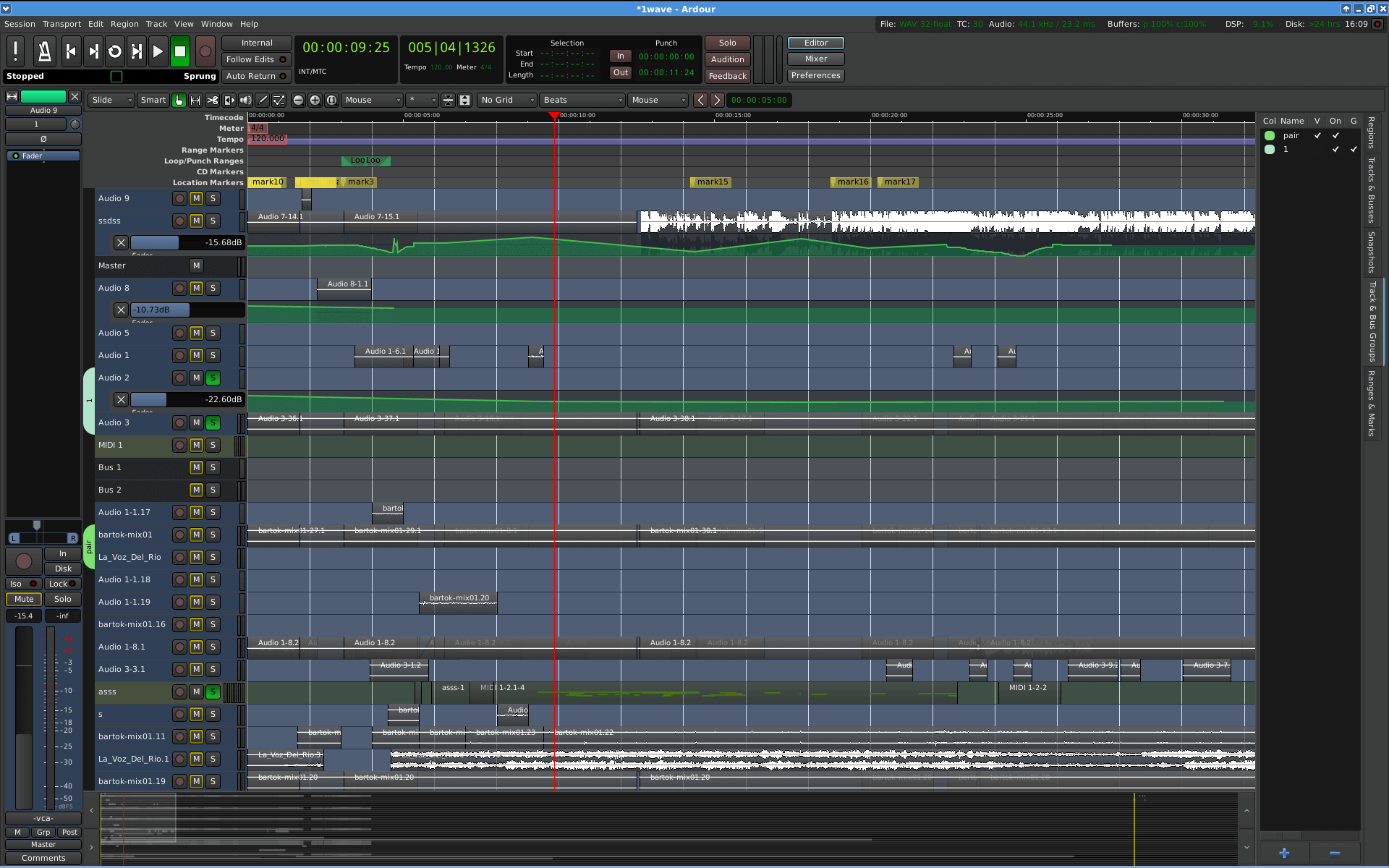

- #SOMETHING LIKE ARDOUR FOR WINDOWS HOW TO#
- #SOMETHING LIKE ARDOUR FOR WINDOWS FULL#
- #SOMETHING LIKE ARDOUR FOR WINDOWS WINDOWS#
Some people are worried custom scripts may "break" in terms of compatibility with later versions of Reaper. There's a repo management system of sorts for most of these scripts (which in itself is an add-on, called ReaPack).
#SOMETHING LIKE ARDOUR FOR WINDOWS WINDOWS#
There are thousands of them, from simple functions to advanced dialog windows which for example can do things like generate compression/de-essing envelopes in realtime. Anyone can write scripts and/or make custom actions/macros (some of it is very simple, and some obviously requires programming knowledge).
#SOMETHING LIKE ARDOUR FOR WINDOWS FULL#
The full extent of Reaper's customization for your tastes may rely on add-on scripts. Some people customize Reaper in ways (and to such an extent) that leave it virtually unrecognizable as Reaper. After a few uses though I realized there's so many possibilities it was a matter of setting it up how I wanted. Initially it feels bare and almost stark. A lot of it is left up to you to explore and discover.
#SOMETHING LIKE ARDOUR FOR WINDOWS HOW TO#
The other side of that: not having defaults which make a new user feel comfortable with the program, "holding your hand" and "showing you how to do things its own way". It can usually bend to fit the workflow I want rarely do I find that I'm hindered by a lack of workflow options. No DAW is absolutely perfect/flawless either. Each has something about it that's different, and to some people it's a make-or-break difference. Since a lot of DAWs in Linux are free, it's a good idea to try them to see which workflow suits you best. If interested, load demo version, and most likely you will start getting marketing emails. It is Ardour with great mixing interface. Mixbus is best thing if you are mostly recording real audio. I would only recommend LMMS to beatmakers and newcomers who need something that ships with plenty of easy to use synths and sample(r)s.Īnd let's not forget about RADIUM, which is actively developed and might be interesting for people who like trackers.Īnyway, to answer OP's question, right now I say Ardour.

Nice summary! Although for electronica, I think MusE is much better - it has proper MIDI support and supports LV2, unlike LMMS. You can try running a Windows-native DAW like Ableton, Cubase, or Protools on Linux with Wine if you're the kind of person who thinks that getting a back massage with a cheese grater sounds like a fun time. Use Mixbus if you want something kinds of like Ardour with a virtual old-school mixing console (including some emulation of how an analogue mixer colors the sound, I think?) I can't really tell you much about the latter two, other than people who use them seem to really like them. Some commercial options that work natively on Linux are Mixbus, REAPER and Bitwig Studio. Use Zrhythm if you want to try something on the bleeding edge. Use Rosegarden if you want a music notation editor and you don't like MuseScore. Use MuseScore if you want a music notation editor that also happens to play the music. Use Ardour if you want good multi-track audio recording/mixing that also happens to support midi tracks. Use Qtractor if you want a good midi sequencer that also happens to support audio tracks.


 0 kommentar(er)
0 kommentar(er)
